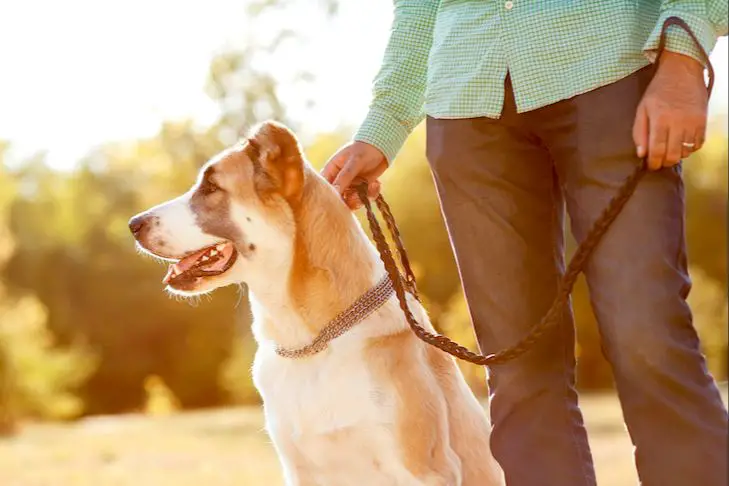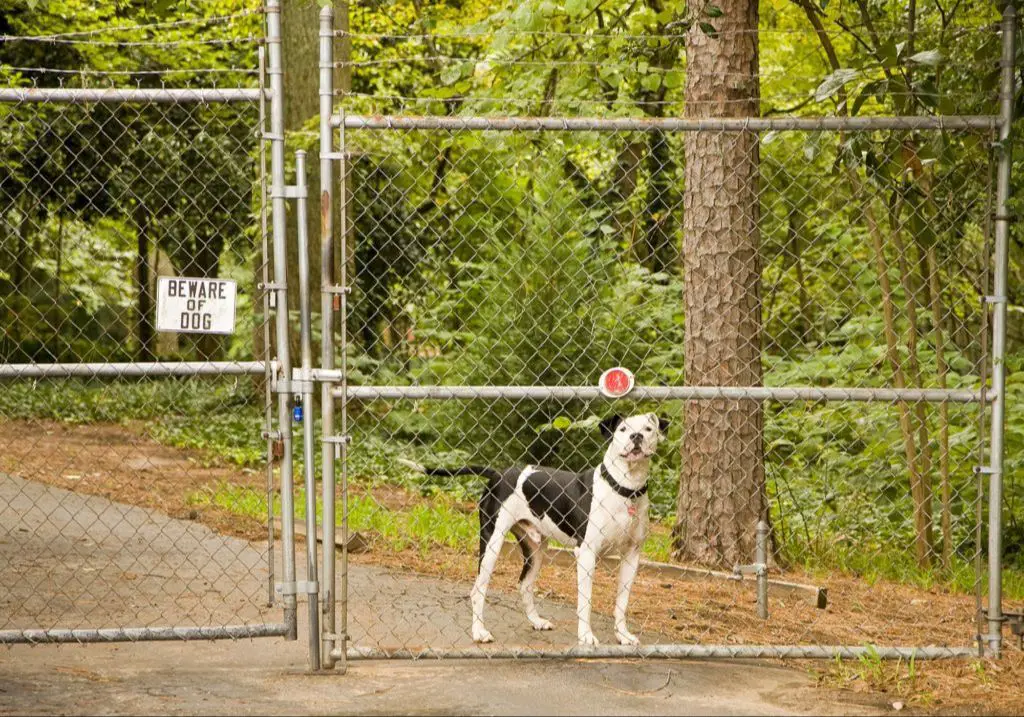Introduction
This article will provide an overview of Texas dog bite laws and what to do if your dog bites someone on your property. We’ll start by looking at liability factors and analyzing when a dog owner could be responsible for injuries. Next, we’ll explore possible defenses a dog owner may have. We’ll also discuss damages and compensation that may be awarded to a victim. Insurance considerations will be examined, along with whether to pursue settlement or a lawsuit. Tips to prevent dog bites will be provided. Finally, the article will outline steps to take if your dog does bite someone.
Texas Dog Bite Laws
Texas law regarding dog attacks and bites on private property involves a legal principle called “strict liability.” Under strict liability, the dog’s owner is legally responsible for any injuries or damages caused by the dog, regardless of whether the owner was negligent or at fault in any way. The justification for strict liability is that the risk of injury or damage from a dog attack is foreseeable to the owner and the victim did nothing to provoke the attack.
So under Texas law, if your dog bites or attacks someone on your property, you as the owner will be legally responsible and liable for the injuries and damages. It does not matter whether you were careful, took precautions, had no prior knowledge of any dangerous tendencies, or believe your dog was provoked – strict liability places responsibility solely on the owner in these situations.

There are limited defenses under Texas dog bite law which can sometimes relieve the owner of liability. These include if the injured person was trespassing or provoking/harassing the dog, or if the bite happened while the dog was working with police or military. But in most cases on private property, the owner will bear responsibility.
Texas does have a “first bite rule” meaning owners may not be liable if they had no reason to suspect the dog may bite. But this usually requires proof the owner took reasonable precautions and the bite was unforeseeable.
So if your dog bites someone at your home in Texas, you should expect to be legally and financially responsible regardless of the exact circumstances leading to the bite.
Liability Factors
In Texas, dog bite laws are governed by the state’s “strict liability” statute. This means that an owner is liable for damages caused by their dog, even if the owner did not know the dog might bite someone.
However, there are some factors that can affect liability and potential defenses:
- Provocation – If the victim provoked or teased the dog, the owner may not be liable.
- Trespasser – Property owners are not liable if the victim was trespassing.
- Failure to Restrain – Owners can be liable if they failed to properly restrain their dog in public or at home.
- Knowledge of Aggression – Owners are liable if they knew their dog had aggressive tendencies but did not take precautions.
- Negligence – Owners must exercise reasonable care to prevent their dog from harming others.
- Leash Laws – Failing to leash the dog as required by law can establish owner negligence.
- Veterinarian Warnings – Vet warnings about aggression can help establish owner knowledge of risks.
If any of these liability factors are present, the owner is more likely to be found responsible for a dog bite injury claim.
Possible Defenses

If you are a dog owner who is sued after your dog bites someone, there are several possible defenses you may be able to raise to avoid liability:
Contributory Negligence
You may be able to argue that the victim’s own negligence contributed to the bite. For example, if the victim trespassed onto your property and provoked your dog, their own negligent behavior contributed to the incident.
Assumption of Risk
You could potentially argue that the victim knew the risks of interacting with your dog but chose to accept those risks. This applies in situations where the victim had previous interactions with your dog and knew your dog had a tendency to bite.
Trespassing
If the victim was bitten while trespassing on your property, you may be able to avoid liability. Texas law does not require dog owners to protect trespassers from dog bites. However, you may still be liable if you knew your dog was dangerous and could bite trespassers.
Provocation
If the victim provoked your dog in a way that would reasonably cause any dog to bite, you may not be liable. This applies if the victim hit your dog, pulled its tail or ears, or otherwise provoked the dog.
Raising an effective defense requires evidence and legal arguments, so consult an attorney to pursue these defenses and avoid liability after your dog bites someone.
Damages/Compensation
If a dog bite victim prevails in a lawsuit against the dog owner, there are several types of compensatory damages they may be able to recover:
Medical expenses – This covers the cost of any medical treatment required as a result of the dog bite, including hospital bills, ambulances services, physical therapy, prescriptions, assistive devices, and more. Victims must provide evidence of these expenses.
Lost income – If the victim missed work due to the dog bite and resulting injuries, they can claim these lost wages as damages. Supporting documentation such as pay stubs, employer records, and tax returns are required.
Pain and suffering – Damages for pain and suffering compensate the victim for physical pain, emotional distress, loss of enjoyment of life, and other hardships resulting from the dog bite. There is no fixed standard, but factors like severity and permanence of injuries are considered.
Punitive damages – If the dog owner’s actions are found especially reprehensible, egregious, or reckless, the victim may receive additional punitive damages meant to punish the defendant. The behavior must meet a very high standard to warrant punitive damages.
Recovering damages requires evidence and documentation. Victims should retain all records related to medical bills, lost income, and hardships. The total value depends on the specific circumstances of the case. Consultation with a personal injury attorney is advisable to determine full compensation.
Insurance Issues
If your dog bites someone, your homeowners or renters insurance may provide liability coverage. Here’s what you need to know about making a claim:

Homeowners Insurance
Most standard homeowners insurance policies cover dog bite liability, falling under bodily injury coverage. This applies whether the incident occurred on or off your property. Coverage amounts vary but often range from $100,000 to $300,000.
File a claim as soon as possible after the bite. Provide details like the date, time, location, people involved, injuries, and treatment. Cooperate fully with your insurer’s investigation.
Your rates may increase after a dog bite claim, but likely won’t be cancelled unless there were prior incidents.
Renters Insurance
Renters insurance includes personal liability coverage that applies to dog bites. File a claim with your insurer after promptly notifying your landlord.
Unlike homeowners insurance, renters policies can be cancelled after a dog bite. Limit your financial risk by increasing your coverage.
Work closely with your insurer and landlord during the claims process. You may need to provide proof of vaccination and registration.
Settlement vs Lawsuit
If your dog bites someone in Texas, you may want to consider settling the matter directly instead of getting involved in a lawsuit. Here are some pros and cons to weigh:
Pros of Settling
- Avoids the time and expense of a lawsuit
- Allows you to resolve the matter privately
- Lets you negotiate the amount of damages
- Prevents you from risking larger damages awarded in court
Cons of Settling
- May require accepting liability even if you disagree
- Can be costly depending on the settlement amount
- May encourage fraudulent claims if you have a reputation for settling
Pros of a Lawsuit
- Allows you to contest liability if you disagree with it
- Provides the structure of a legal process
- Lets a judge or jury determine appropriate damages
- Gives you legal defenses that could limit or eliminate damages
Cons of a Lawsuit
- Much more time-consuming than settling
- Risks larger damages if you lose the case
- Incurs significant legal fees and costs
- Required to file within statute of limitations (2 years in Texas)
When deciding whether to settle or file a lawsuit, be sure to weigh all these factors carefully. Consulting with an attorney can also help guide you in determining the best course of action.
Prevention Tips
As a dog owner, you can take steps to prevent your dog from biting someone. Here are some tips to help avoid dog bites on your property:

Use physical restraints. Keep your dog leashed or behind a fully enclosed fence. Install double gates at entrances so your dog does not dart out. Supervise your dog when guests enter and leave.
Provide proper training. Enroll your dog in obedience classes to teach good manners and impulse control. Train your dog not to jump on people or behave aggressively. Teach children how to properly interact with dogs.
Supervise interactions. Do not leave your dog unsupervised with children, strangers, or in chaotic situations where they may feel threatened. Watch your dog’s body language for signs of fear or anxiety.
Post warning signs. Place “Beware of Dog” or “Dog on Premises” signs around your property. Verbally warn guests about your dog’s presence.
Show responsible ownership. License and microchip your dog. Keep vaccinations up-to-date. Spay/neuter your dog if relevant. Ensure proper healthcare.
Create safe spaces. Provide your dog with a quiet place to retreat when needed. Teach children to leave dogs alone when in their safe space.
Muzzle as needed. Use a basket-style muzzle to prevent biting during stressful situations like vet visits.
Seek help if needed. If your dog exhibits aggressive or anxious behaviors, consult a veterinary behaviorist or certified trainer.
What To Do If Your Dog Bites
If your dog bites or attacks someone, it’s important to take the proper steps afterward to best protect yourself and your dog legally.
Here are some recommended steps dog owners should take if their dog bites someone:
-
Exchange contact and insurance information with the injured person if possible. Get their name, address, phone number, and any medical insurance details.
-
Get contact information for any witnesses to the bite.
-
Take photos of the injuries as evidence.
-
Get veterinary records showing your dog is up-to-date on shots and vaccinations.
-
Notify your homeowner’s or renter’s insurance provider about the incident.
-
Do not make any statements admitting fault or liability.
-
If the skin was broken, seek immediate veterinary attention for your dog to test for rabies.
-
Consider hiring a lawyer if the injuries are significant or if you are concerned about liability.
-
Be prepared to quarantine your dog or turn it over to animal control if requested.
Taking these steps can help protect yourself while also doing the right thing for the injured person. Make sure to follow any instructions from authorities and consult an attorney to understand your rights and obligations.
Conclusion
In summary, Texas has strict liability laws when it comes to dog bites, meaning dog owners are responsible regardless of negligence or the dog’s history. Key factors that determine liability include where the bite occurred, whether proper precautions were taken, if there were “beware of dog” signs posted, and whether local ordinances were followed. Possible defenses for the dog owner can include provocation, assumption of risk, or trespassing.
The takeaway is that dog owners in Texas need to take steps to minimize liability if their dog bites someone. This includes proper training and socialization, keeping dogs leashed or confined when in public areas, posting warning signs on their property, and being aware of their insurance coverage options. Preventing dog bites in the first place should be the priority through responsible pet ownership. If a bite does occur, consulting an attorney is advisable to understand the best options to resolve or defend against a claim.